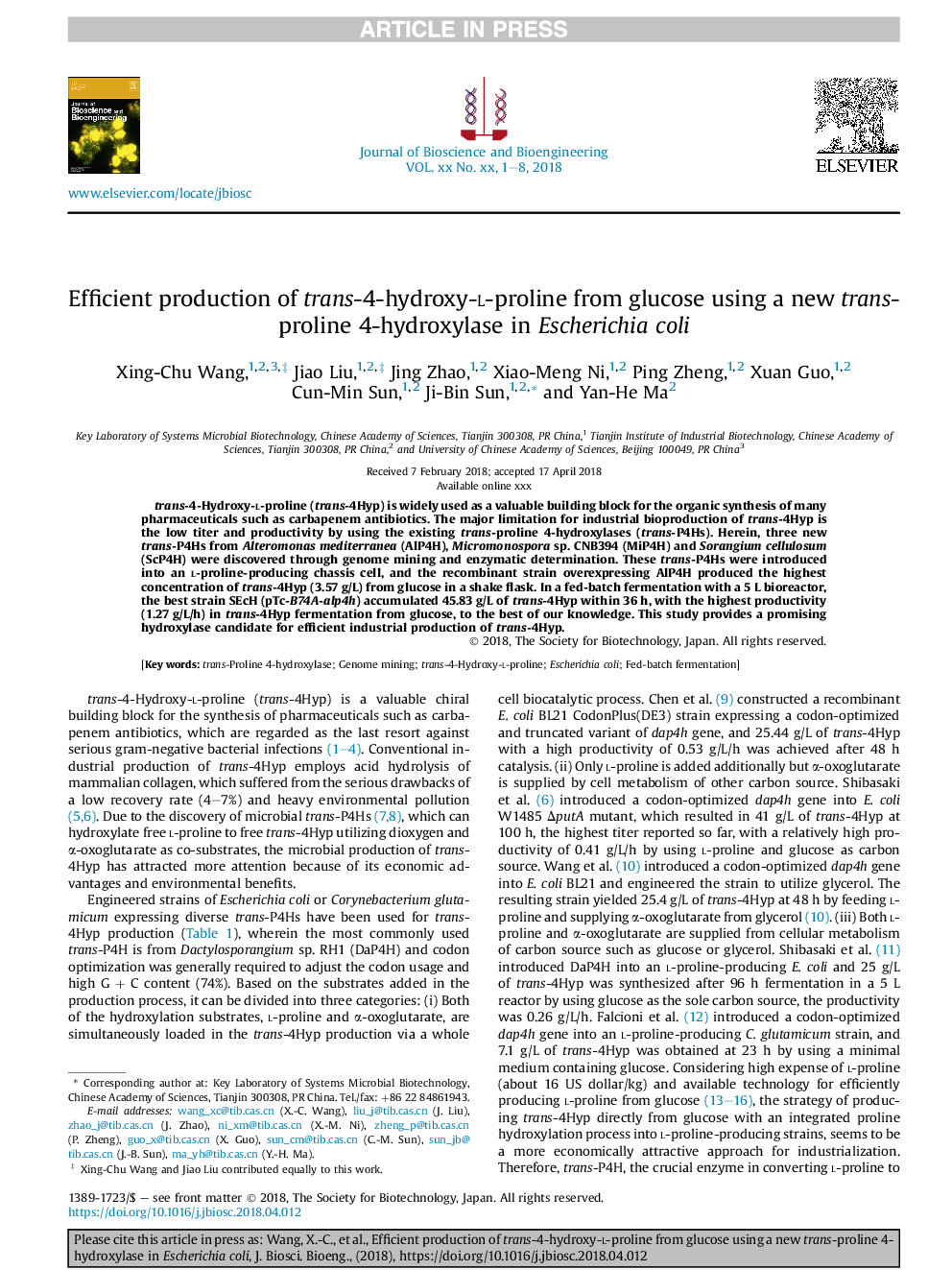| Article ID | Journal | Published Year | Pages | File Type |
|---|---|---|---|---|
| 11021634 | Journal of Bioscience and Bioengineering | 2018 | 8 Pages |
Abstract
trans-4-Hydroxy-l-proline (trans-4Hyp) is widely used as a valuable building block for the organic synthesis of many pharmaceuticals such as carbapenem antibiotics. The major limitation for industrial bioproduction of trans-4Hyp is the low titer and productivity by using the existing trans-proline 4-hydroxylases (trans-P4Hs). Herein, three new trans-P4Hs from Alteromonas mediterranea (AlP4H), Micromonospora sp. CNB394 (MiP4H) and Sorangium cellulosum (ScP4H) were discovered through genome mining and enzymatic determination. These trans-P4Hs were introduced into an l-proline-producing chassis cell, and the recombinant strain overexpressing AlP4H produced the highest concentration of trans-4Hyp (3.57Â g/L) from glucose in a shake flask. In a fed-batch fermentation with a 5Â L bioreactor, the best strain SEcH (pTc-B74A-alp4h) accumulated 45.83Â g/L of trans-4Hyp within 36Â h, with the highest productivity (1.27Â g/L/h) in trans-4Hyp fermentation from glucose, to the best of our knowledge. This study provides a promising hydroxylase candidate for efficient industrial production of trans-4Hyp.
Related Topics
Physical Sciences and Engineering
Chemical Engineering
Bioengineering
Authors
Xing-Chu Wang, Jiao Liu, Jing Zhao, Xiao-Meng Ni, Ping Zheng, Xuan Guo, Cun-Min Sun, Ji-Bin Sun, Yan-He Ma,
